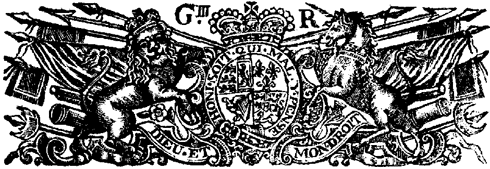

The First Foot Guards
We are a Revolutionary War
reenactment group based in Boston MA,
accurately portraying the royal household regiment that is now known as
The Grenadier Guards
{
Provisioning the men
Full provisioning was not always possible, and there were many substitutions.
Full allowance for 6 men:
Sunday
6lb of bread or flour
6lb pork
3 pints of pease
8 gills of rum
Monday
6lb of bread or flour
3/4lb butter
4 1/2 pints of pease
8 gills of rum
Tuesday
6lb of bread or flour
10 1/2lb beef
1 1/2lb of rice or oatmeal
8 gills of rum
Wednesday
6lb of bread or flour
3/4lb butter
2 pints of pease
8 gills of rum
Thursday
6lb of bread or flour
6lb pork
2 pints of pease
8 gills of rum
Friday
6lb of bread or flour
3/4lb butter
4 1/2 pints of pease
8 gills of rum
Saturday
6lb of bread or
flour
10 1/2lb beef
1 1/2lb of rice or oatmeal
8 gills of rum
The rum was usually diluted with water. The troops were occasionally permitted to have small quantities of claret, spruce beer or porter. Sometimes spruce beer was substituted for the rum, and a spruce beer manufactory was set up in New York City. Spruce beer was thought at the time to be anti-scorbutic (prevented scurvy).
The average soldier was well acquainted with rum and pease (the normal spelling at the time for 'peas'). The peas were supplied dried, and needed to be soaked and boiled into a mush known as 'pease pudding'. With the addition of ham or chicken, this could be a tasty dish. If insufficiently cooked, it could be less than appetizing.
Rice or oatmeal would also need some cooking - difficult for an army on the march. Samuel Johnson in his famous Dictionary was unflattering in his description of oatmeal " A foodstuff for horses or Scotsmen" … but then he did not serve in the army.
The full allowance for hospital was unappealing:
Breakfast
Rice gruel or water gruel with sugar or butter
Dinner
1 lb fresh meat (beef, mutton or veal) with greens
Supper
2oz butter or cheese
…but you might also be put on the Half diet or the Low Diet.
Throughout British history, the size of coopered casks has varied, but at this time the sizes represented:
Pin: 1/2 firkin
or 4 1/2 gallons
Firkin: 9 gallons
Kilderkin: 1/4 tun or 16 gallons
Tun: 64 gallons
Hogshead: 100-140 gallons
The shipping of hogsheads by sea, and their subsequent land transportation was impracticable, but the shipped sizes of casks was at the whim of the suppliers. Tuns or kilderkins were more practical. The kilderkin is the normal size of a 'barrel' shipped to British pubs nowadays (although usually supplanted by the smaller aluminum keg).
For those unused to old measures (now referred to as Imperial):
2 gills one pint
2 pints one quart
4 quarts one gallon
These measures are 1/5 greater than comparable US measures (watch out when you request 'a pint' in an English pub.)
"Life aboard the transports was very difficult. Conditions to both man and beast were often fatal. The situation was truthfully, if rhetorically, summed up by an officer of the Guards who was going with a detachment to join Howe at New York, when he wrote:
'There was a continued destruction in the foretops, the pox above-board, the plague between the decks, hell in the forecastle, and the devil at the helm.'
Clinton announcing the arrival of a contingent of recruits at New York in 1779 lamented that 'many of the Troops are very sickly, owing to the extreme Length of the Voyage.' Out of 2400 Germans coming to that port in August of 1781, he recorded that 410 were sick on landing, while 66 had perished from scurvy.
Small wonder a Private aboard a troop transport bound for America described the soldiers' fare as:
'pork and pease were the chief of their diet. The pork seemed to be four of five years old. It was streaked with black towards the outside, and was yellow father in, with a little white in the middle. The salt beef was in much the same condition. The ship biscuit was so hard that that they sometimes broke it up with a cannonball, and the story ran that it had been taken from the French in the Seven years' war and lain in Portsmouth ever since. Sometime they had groats and barley, or by way of a treat, a pudding made of flour mixed half with salt water and half with fresh water, with old mutton fat.'
Much of the food supplied had to be condemned. When Howe left Boston in March of 1776, he left behind as 'unfit for His Majesty's troops to eat' 61 barrels of pork, 32 firkins of butter, 1000lbs of cheese, 12 casks of raisins, 393 bags of bread and ' A Quantity of Mutton in Puncheons, spoiled in Curing and unfit for Use.' "
Quotations from Professor EE Curtis, The Organization of the British Army in the American Revolution, 1926, Yale University, New Haven, CT.
More
info: visit
http://www.revwarprogressive.org
Go to Articles
"Biscuit
& Cake"
"To Nourish..."
Return
to army Organization page
Click